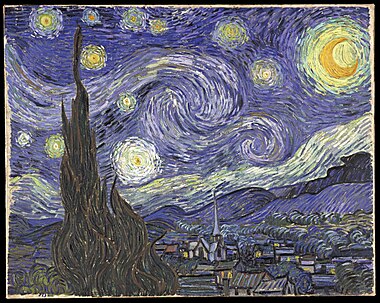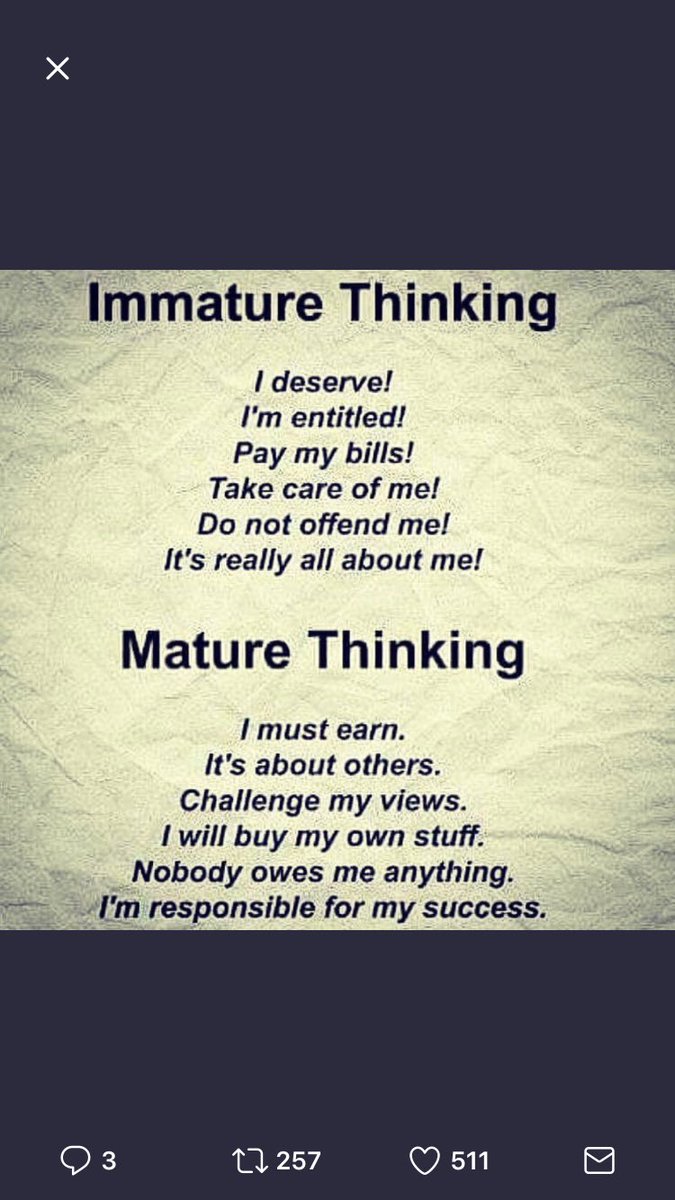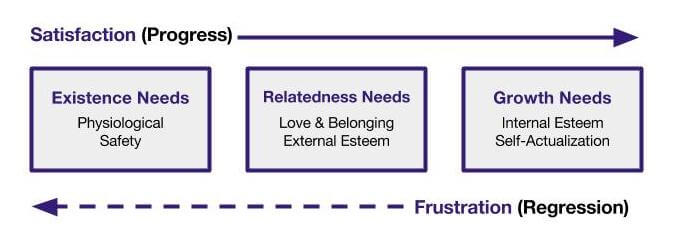
Wiki / Reife
Inhaltsverzeichnis: (verbergen)
 Sternennacht |
|
Solange du nach dem Glück jagst, |
|
|
| Ausgrenzend, das Gesicht hinter vorgehaltenem Arm verbergend möchte der Unreife glauben (machen), dass dadurch "alles gut" ist, weil er 'brav' die "böse" Wirklichkeit ausgrenzt, die seinem imaginierten Bild von "Licht und Liebe" ohne Verantwortlichkeit und Konsequenz widerspricht. |
| Siehe auch: ► Gewissensbildung und ► Lichtnahrung und ► Bewusstsein-Tabellen und ► Sucht-Tabellen |
|
Persönliche Bekenntnisse
Empfehlungen
Schlussfolgerungen
Einsichten
Lebenslange Aufgabe jedes Menschen
Anonymes Original – spaltende Version
Korrigierte Version
|
Literaturzitate
Personal avowals
"We do what we do until we know better. When we know better, we do better."

Definition
Recommendations
Appeals
Conclusions
Future outlook
Insights
Emotionally crippled and a lonely youngster, exhibited negative coping styles that did not allow him to truly connect to others. Retired medical doctor with his own practice, he was a devoted husband and an exemplary father.

Original splitting version
Corrected holistic version
Most people's "inalienable emotional needs" were not met sufficiently in childhood. Adults are still trying to meet these basic needs externally which only works "flexibly or partially".

|
Literary quotes
Song lines
Black humor
| ||||
| Source: ► YouTube movie excerpt As good as it gets #1 Melvin visits his psychiatrist, minute 1:32, 1:47 minutes duration, posted 4. Februar 2019 |
| ||||||||||||||||
| Source: ► Movie excerpt You Make Me Want to Be a Better Man – As Good as It Gets (7/8) Movie CLIP (1997), 2:30 minutes duration, posted 25. October 2012 |
| ||||||
| Source: ► YouTube movie excerpt not available |
| ||||
| Source: ► YouTube movie excerpt As Good as It Gets ending.avi, 1997, 4:25 minutes duration, posted 12. October 2010 |
| Source: ► American romantic comedy film As Good As It Gets, starring Jack Nicholson and Helen Hunt, 1997 A single mother/waitress, a misanthropic OCD writer, and a gay artist form an unlikely friendship after the artist is assaulted in a robbery. |
| See also: ► Nine types of the enneagram – exemplified ► Relationship tips and ► Madness and ► Vulnerability and ► Authenticity and ► Woman and ► Depression |
| |||||||||||||||||||||||||||||||||||||||||||||||||||||||
| Source: ► Video dialogue with Richard Barrett, FRSA (*1945) British social commentator, speaker, author on the evolution of leadership and human values in business and society, Evolutionary Coaching, the Power of Trust, and High Trust Cultures, presented by the "Barrett Values Centre", host Michelle Clarke, US American social entrepreneur, executive coach, YouTube film, 48:26 minutes duration, posted 15. April 2014 | |||
| See also: ► Richard Barrett and ► Evolution of consciousness | |||
| ||||||||||||||||||||||||||||||||||||||||||||||||||||||||||||||||||
| Inspired by: ► Blog article 20 New Ways to Judge Others, presented by the blogspot becomingminimalist.com, Joshua Becker, 13. September 2011 |
| ||||||||||||||||||||||||||||||||||||||||||||||||
| Source: ► Dr. Henry Cloud, US American clinical psychologist, Dr. John Townsend, US American Christian self help author Safe People. How to Find Relationships That Are Good for You and Avoid Those That Aren't, Zondervan, 1995 |
|
| Source: ► Audio radio interview with Michael Meade Mosaicvoices.org US American storyteller, scholar of mythology, psychology, anthropology, ritualist, spokesman in the men's movement, author, The Pathless Path, presented by the US American web radio station KBOO, Portland, program Radiozine, host Ralph Coulson, minute 14:39, 29:24 minutes duration, aired 13. May 2013 |
|
| Source: ► Erich Fromm (1900-1980) US American social psychologist, psychoanalyst, sociologist, humanistic philosopher, author, The Art of Loving, Harper & Brothers, 1956 |
|
| Source: ► Vimeo video presentation by Gloria Steinem gloriasteinem.com (*1934) leading US American feminist of the new women's movement, visionary and political activist, founder and editor of the feminist US magazine "Ms", journalist, writer, Perspectives on Equality and Community – Common Hour, sponsored by the Franklin & Marshall College, Lancaster, Pennsylvania, 9. September 2010, minute 33:00, 53:54 minutes duration, posted 10. September 2010 |
| ||||||||
| Source: ► Marianne Williamson (*1952) US American spiritual teacher, political activist, visionary, lecturer, author, Illuminata. A Return to Prayer, Riverhead Trade, 1. November 1995 |
| |||||
| Source: ► Seth Adam Smith, US American editor-in-chief, Marriage Isn't For You, presented by the publication Forward Walking, 2. November 2013 |
| See also: ► Beziehung and ► Beziehungstipps |
|
|
Slowing downwards to the roots of one's being
|
|
|
|
|
The practice of setting boundaries
|
|
|
Brené Brown's insight3
✣ Empathy minus boundaries is not empathy.
✣ Compassion minus boundaries is not genuine.
✣ Vulnerability without boundaries is not vulnerability.
Boundaries are frickin' important. They are not fake walls, they are not separation. |
|
Recommendations4
If you've repeatedly tried to establish and set boundaries which are important to you, and your partner continuously disrespects them, |
| Articles: ► Setting Personal Boundaries, presented by Life Balance Institute, online publication dharmawisdom.org, Phillip Moffitt, US American former CEO and editor-in-chief of Esquire magazine, ~2015 ► How To Set Boundaries Within Your Relationship, According To Experts, presented by the publication Bustle, Natalia Lusinski, 24. January 2018 ► 10 Ways to Build and Preserve Better Boundaries, presented by the independent mental health social network PsychCentral, Margarita Tartakovsky, M.S., 4. April 2018 |
| See also: ► Quotes by Brené Brown |
| |||||||||||||||
| Source: ► Blog article Ancient Wisdom Reveals 6 Rituals That Will Make You Happy, presented by the website Barking up the Wrong Tree, Eric, September 2016 |
Links zum Thema Reife / MaturityLiteratur
Kahneman unterscheidet zwischen zwei sehr unterschiedlichen Denkweisen: "System-1" – schnell und fehleranfällig (unreif) und "System-2" – bewusst und energieaufwändig (reifer)
Literature (engl.)
The Way It Is, enlightened parable, eigth and final book of the series
Externe Weblinks
Enrique Rojas (*1947) spanischer Lehrstuhlinhaber für Psychiatrie, Universidad de Extremadura, Spanien, hat die wichtigsten Weblinks zum Thema Reife – QuoraBeiträge verfasst von Elfriede Ammann, präsentiert auf der kalifornischen Frage-und-Antwort Webseite Quora DE
External web links (engl.)
Non-material factors such as social supports, freedoms, and fairness may play a bigger role than money in future well-being, according to new research.
Audio- und Videolinks
Audio and video links (engl.)
|
Englisch Wiki
Hawkins
1 The five aggregates are: material form, feelings, perception, volition (sometimes translated as mental formations), and sensory consciousness. ⇑
2 Source: Pia Mellody, US American educator and lecturer in the fields of addictions and relationships, author, Facing Codependence. What It Is, Where It Comes from, How It Sabotages Our Lives, HarperOne, San Francisco, 1st edition 29. April 2003 ⇑
3 Video interview with Brené Brown, Ph.D., LMSW (*1965) US American shame, vulnerability, empathy researcher, Graduate College of Social Work, University of Houston, public speaker, author, Boundaries with Brené Brown, Facebook video, minutes 0:09, 1:57, 5:08 5:53 minutes duration, posted ~2015 ⇑
4 Source: Article How To Set Boundaries Within Your Relationship, According To Experts, presented by the publication Bustle, Natalia Lusinski, 24. January 2018 ⇑